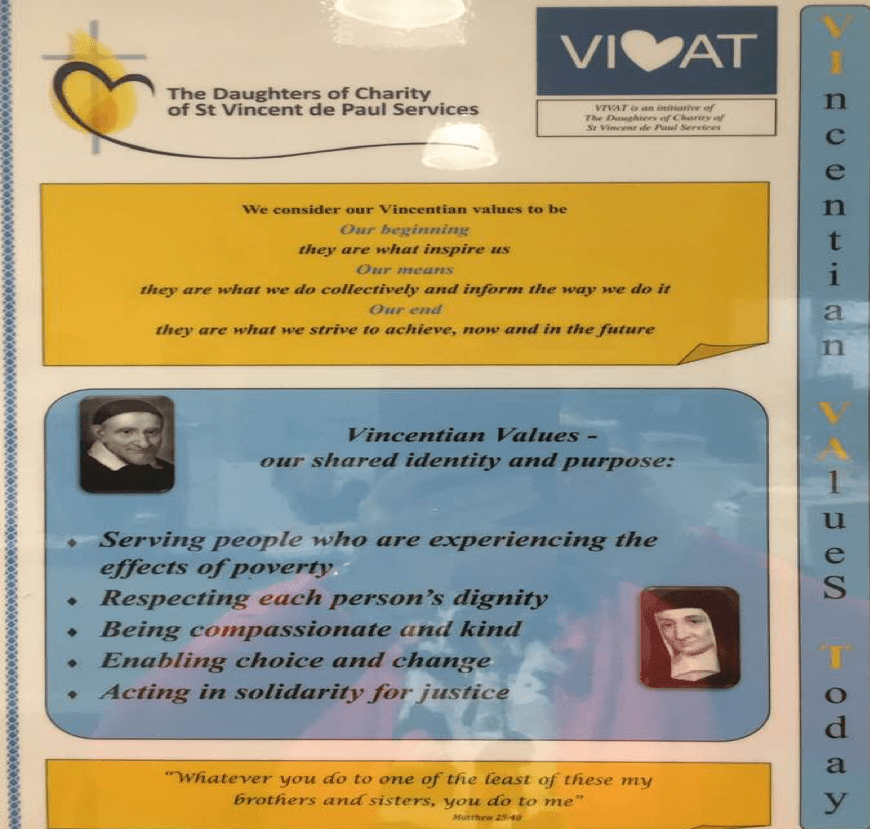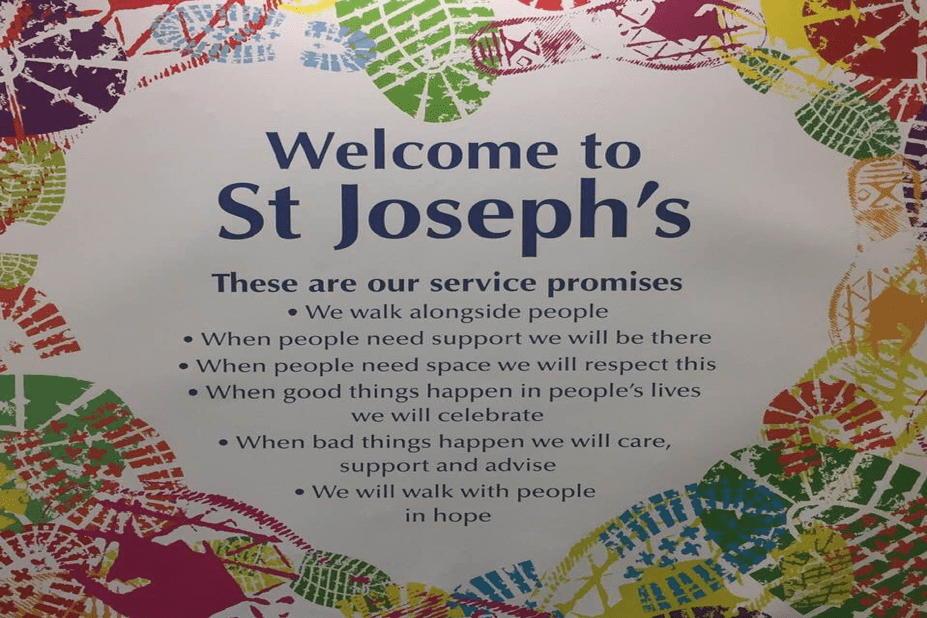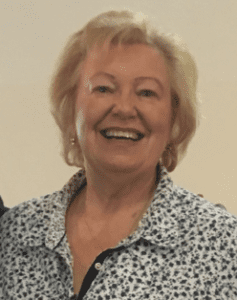Vincentian Values Today – Have You Caught The Charism?
VIVAT! VIVAT! VIVAT! The Latin term expresses a hope on the part of the speaker that another should live. How meaningful that this heartfelt word is also the acronym for Vincentian Values Today!

In Great Britain, VIVAT is “a work stream of DCSVP Services of the Great Britain Daughters of Charity Services” which brings together several front-line charities, originally founded by the Daughters, and now separate charities, which support local communities across London, Scotland and Manchester. The diverse range of services include: “helping Roma women and families, providing long-term assistance to adults with learning disabilities, and supporting the families of prisoners.”

Vincentian values are woven in the warp and weft of this rich tapestry of organizations. Signalling this strongly is the title of the Chief Executive, Sr. Margaret Barrett, DC – is called Director of the Mission. As their Mission Statement proclaims, Vincentian values are their “beginning, means and end.”
Operations Manager, Mark Choonara explained that “people of all faiths and non are employed, and it is essential that staff be committed to learning about, acting in accordance with, and further promoting the Vincentian values which underpin all aspects of our work.”
Mark said that each person’s denominational or other beliefs were not apparent, because they all held Vincentian values so closely. It sounds like it is their unifying force – the glue to all their working lives. They speak the Vincentian vernacular!

So, putting Vincentian values under the microscope, can they stand up to the scrutiny of modern management and leadership? Looking at two systems, Transformational leadership and Servant leadership, do Vincentian values compete or complement?
The parallels are immediately obvious! St. Vincent de Paul certainly was a Servant Leader. He was very involved in the development of those he served: his Confreres, the Daughters of Charity, the Ladies of Charity (AIC), the Council of Conscience and the poor. In turn, he was a Transformational Leader, transforming them into servant leaders, he sent them to serve and evangelize. Acting with shrewdness and wisdom, in which he excelled, Vincent was a change agent – the grit in the oyster which creates the pearl.
He never faltered from his vision. In Vincent’s eulogy the officiating Bishop said, “Yes Messieurs, it is necessary to tell you it was Vincent de Paul who all but changed the face of the Church….(1).”
Louise de Marillac drew reassurance and formation from Vincent’s leadership. To one of the Confraternities of Charity meetings in May 1628, Vincent asked Louise to “go in the name of our Lord” (2) offering advice and a warning that the role of servant leader would bring with it delight and despair, success and failure. Their management model was not leadership systems or manuals but rather of direct service.
Sr. Margaret Barrett’s Vincentian vernacular is clear: “we are convinced of the validity of what we are doing. VIVAT formation is intentional, it’s ongoing and our colleagues certainly “catch the charism.” When we see the Values lived out daily and Vincentian hearts flourishing, we know that those we have the privilege to serve are in safe hands.”
Mark was clear too that Vincentian values ensured longevity and consistency, citing St. Joseph’s Care Home almost 100 year old history: “Over the years, as services develop and new staff join, the values – our charism, is the constant.”

While visiting the DC Services with Sr. Marge Clifford, DC of the Vincentian Family Office in 2018, I saw too that Staff say they are “relieved to be working within a Vincentian charism. It’s not just a job.” Sr. Kathleen Paige DC, Pastoral Leader in Rosewell is currently studying for a PhD in Vincentian Pastoral Care. Such is the appreciation of staff who have caught the charism, they are surprised to have so much time given in staff meetings to reflection “I never expected to feel this way.”
My conclusion is that the Vincentian charism taps into basic human need – and for all this is a highly effective practice in the service of others. I will leave the last word to Louise “….arise each morning with new courage to serve God and the poor well.” (3)
- Henri de Maupas du Tour: The Funeral Oration for Vincent de Paul. Page 96
- Correspondence Conferences Documents. Vol. 1. Page 6.
- Spiritual Writings of Louise de Marillac. Letter 201 Page 225
 Dee Mansi is a lay member of AIC, Vincentian Collaboration Commission, Vincentian Family Executive Committee & Depaul Assembly; a retired School Principal, Schools Inspector and Leadership in Education Lecturer. Dee is Irish, living in London with her husband and son, she travels in Europe and beyond.
Dee Mansi is a lay member of AIC, Vincentian Collaboration Commission, Vincentian Family Executive Committee & Depaul Assembly; a retired School Principal, Schools Inspector and Leadership in Education Lecturer. Dee is Irish, living in London with her husband and son, she travels in Europe and beyond.
Opinions expressed are the author’s own views.







Terrific article Dee. I hope our paths cross again soon.